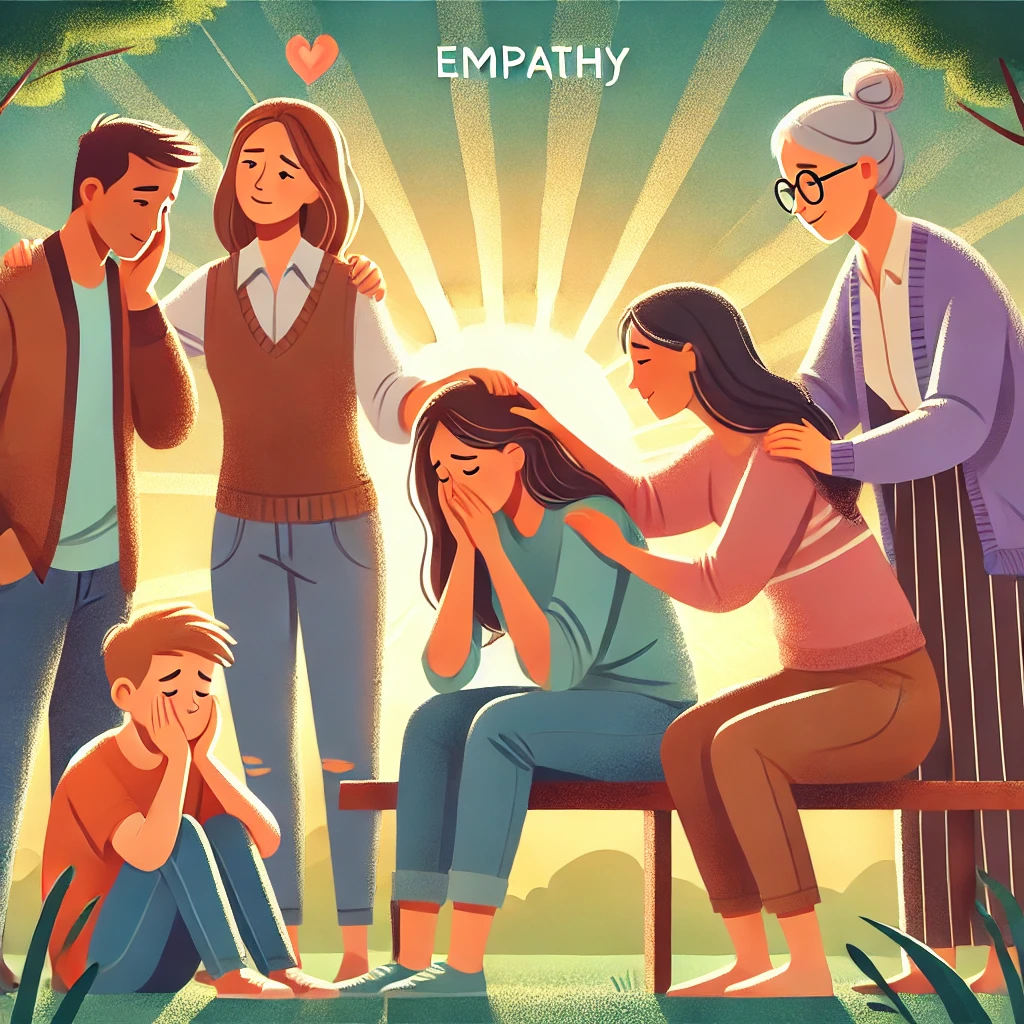Empathy is a fundamental human trait that allows us to connect with others on a deeper level. It is the ability to understand and share the feelings of another, fostering trust, compassion, and stronger relationships. Whether in personal or professional settings, empathy plays a crucial role in communication, conflict resolution, and emotional well-being. In this article, we explore how empathy shapes relationships and how to cultivate it in daily life.
What is Empathy?
Empathy goes beyond sympathy, which is merely feeling sorry for someone. Instead, it involves truly putting oneself in another person’s shoes and experiencing their emotions. Psychologists categorize empathy into three main types:
- Cognitive Empathy – The ability to understand another person’s perspective or mental state.
- Emotional Empathy – The capacity to share and feel the emotions of others.
- Compassionate Empathy – The drive to take action and help someone in distress.
By practicing all three types of empathy, individuals can develop more meaningful and authentic relationships.
The Role of Empathy in Relationships
Empathy is a cornerstone of strong and healthy relationships. Here’s how it impacts various aspects of human connection:
1. Enhancing Communication
Effective communication relies on active listening and understanding the emotions behind words. When people feel heard and validated, they are more likely to open up and engage in meaningful conversations.
- Helps in understanding different viewpoints
- Reduces misunderstandings and conflicts
- Strengthens trust and connection between individuals
2. Building Emotional Bonds
Empathy deepens emotional intimacy by creating a safe space for vulnerability and honesty. In friendships, romantic relationships, and familial ties, empathy helps in:
- Strengthening emotional support systems
- Creating a sense of belonging and validation
- Encouraging honest and open discussions
3. Resolving Conflicts
Conflicts are inevitable in any relationship, but empathy can turn disputes into opportunities for growth. Understanding the emotions behind disagreements leads to more compassionate and fair resolutions.
- Encourages perspective-taking
- Reduces defensiveness and promotes problem-solving
- Fosters mutual respect and understanding
How Empathy Benefits Mental and Emotional Well-Being
Practicing empathy not only strengthens relationships but also has significant psychological benefits:
- Reduces stress and anxiety – Understanding others’ emotions can create a sense of social connection, reducing feelings of loneliness.
- Improves emotional intelligence – Being in tune with others’ emotions enhances self-awareness and interpersonal skills.
- Boosts happiness – Helping others and forming meaningful connections lead to increased life satisfaction and emotional well-being.
Ways to Cultivate Empathy in Daily Life
Empathy is a skill that can be developed through practice and mindfulness. Here are some effective ways to enhance empathy:
1. Practice Active Listening
Active listening involves fully concentrating, understanding, and responding thoughtfully. Avoid interrupting, and show genuine interest in the other person’s words.
2. Put Yourself in Others’ Shoes
Before reacting to situations, try to understand the perspective of others. Ask yourself:
- How would I feel in their position?
- What factors might be influencing their behavior?
- What can I do to support them?
3. Be Open to Different Perspectives
Exposing yourself to diverse experiences, cultures, and viewpoints broadens your understanding of others. Engage in conversations with people from different backgrounds to develop a more inclusive and empathetic mindset.
4. Show Kindness and Compassion
Small acts of kindness, such as offering a helping hand or being supportive, go a long way in demonstrating empathy. A simple “Are you okay?” or “I’m here for you” can make a difference in someone’s day.
5. Manage Your Own Emotions
Self-awareness is key to empathy. Recognizing and regulating your emotions allows you to be more present and receptive to others’ feelings.
The Power of Empathy in Professional Environments
Empathy is just as important in the workplace as in personal relationships. Employers and employees who prioritize empathy experience:
- Improved teamwork and collaboration – Colleagues who understand each other’s perspectives work more effectively together.
- Higher job satisfaction – A supportive and understanding work environment leads to happier employees.
- Better leadership – Leaders who empathize with their teams build trust and loyalty, resulting in higher productivity and motivation.
Conclusion
Empathy is a transformative force that strengthens relationships, enhances emotional well-being, and fosters meaningful connections. By practicing active listening, showing kindness, and embracing different perspectives, we can cultivate deeper understanding and compassion in our interactions. In a world that often feels divided, empathy serves as a bridge that unites people, creating stronger, healthier, and more fulfilling relationships.
